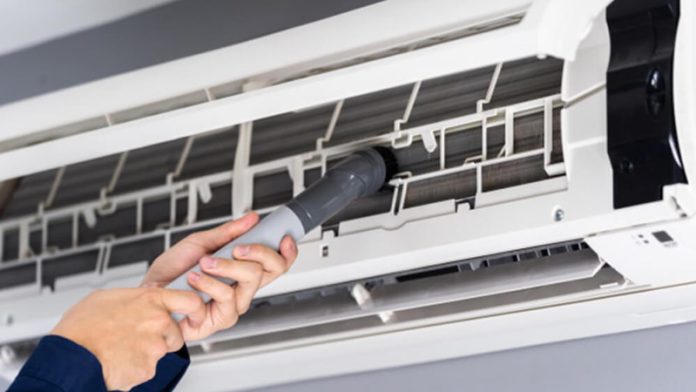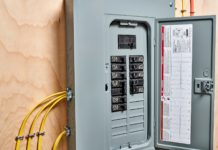Because the air conditioner consumes a considerable amount of energy, it should run as efficiently as possible. Besides, inefficiencies lead to discomforts in extreme weather conditions. Not forgetting, when using less energy, you’re protecting the environment from pollution. Below are ways to improve your air conditioner’s efficiency and make it last longer.
Carry Out Repairs and Maintenance as Required
AC repair restores the function of different parts and improves efficiency. For instance, broken or loose parts cause the system to work harder, consuming more energy and significantly shortening its lifespan.
Regular professional maintenance provides an opportunity to clean and oil different parts, improving efficiency and longevity. Call a reputable AC repair and maintenance company to service the system and address any issues.
Use a Smart Thermostat
A smart thermostat controls your AC wirelessly, even when you’re not home. When away, you can turn the system off until you get back. The device also creates a custom cooling schedule as it learns your preferences. Because you only use the AC when necessary, you save energy and money on utility bills. Besides, the unit rests when not in use, increasing its lifespan.
Install Zone Control
Zone control is an energy-saving system that provides temperature control to different areas in your home. The advantage of using this system is that you only cool occupied areas. Consequently, you save energy, which translates to lower monthly bills. Also, the AC doesn’t overwork by only cooling occupied areas. Zone control also enables you to manage humidity levels better.
Insulate Your Home
To improve your air conditioner’s efficiency, reduce the heat inside your home. The heat from the sun causes the AC to work harder as it tries to maintain a comfortable indoor temperature.
Inspect the walls, floors, attic, and any other place where heat might enter and make the necessary improvements. Add insulation to the walls and ceilings, install weather-stripping on doors and windows and seal gaps.
Upgrade The Air Conditioner
An old and outdated air conditioner uses more energy than a new and efficient model. Start budgeting for an upgrade if your system is over ten years old. New AC units come with better features and energy-saving capabilities.
Some of the latest features you’ll find in new models include zoned cooling, smart thermostats, and energy-efficient motors. Work with an AC installation company to get a properly sized unit for your home and needs.
Upgrade the Ductwork
How air travels through your ductwork has a significant impact on efficiency. If there are leaks, the cool air escapes before it gets to the different rooms in your home. Also, if the ductwork is too small, the AC system has to work harder to push air through, leading to inefficiencies.
Loose, blocked, or disconnected vents also restrict airflow. Upgrade the ductwork to minimize energy losses and improve efficiency. As you will realize, animal nesting, pet dander, dust, and dirt are common causes of ductwork blockages. Regularly clean and check the ductwork for leaks, holes, or blockages.
Use a Dehumidifier
A dehumidifier removes excess moisture from your home, making it more comfortable. Excess moisture puts a lot of strain on your AC system as it tries to cool the air. As a result, the unit uses more energy and wears out faster.
A dehumidifier also controls mold and mildew growth. It leads to fewer allergens and air contaminants, improving indoor air quality. Besides using a dehumidifier, take other measures to reduce moisture, such as fixing leaks, using exhaust fans, and opening windows.
Enjoy Comfortable Indoor Temperatures
Improving air conditioner efficiency reduces energy costs and prolongs the unit’s lifespan. You’ll have fewer breakdowns and enjoy a comfortable indoor temperature. Also, you’ll be doing your part in protecting the environment by reducing carbon emissions. Not forgetting, when the unit lasts longer, you don’t have to replace it often, reducing landfill waste.















